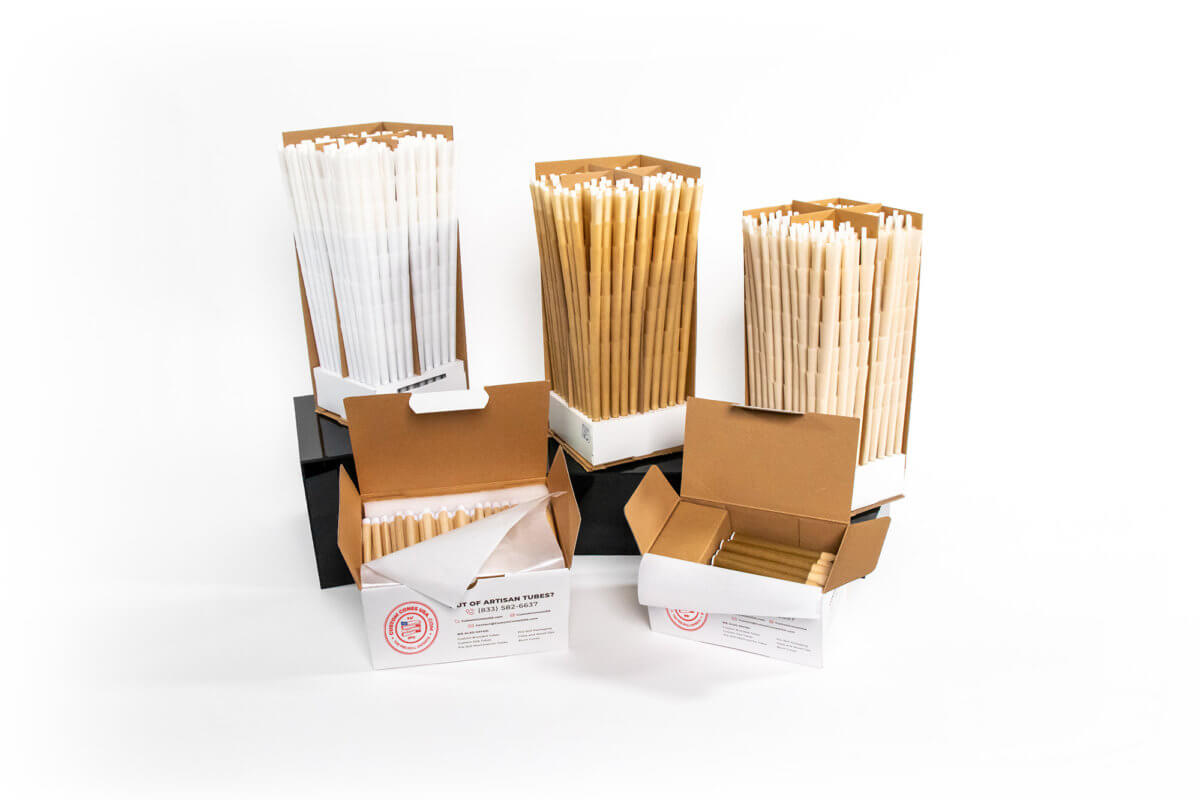Member Blog: Colorado’s Evolving Cannabis Testing Regulations

Among the first two states to legalize and the first market to open, Colorado has had adult-use cannabis regulations in place for more than a decade now and helped set a standard for all the programs that came after it.
But Colorado’s testing regiment, like the industry, is ever evolving, with the state testing for additional pesticides beginning this year, for example. In addition, the state’s new “reduced testing allowance” could make the whole process easier for manufacturers in good standing.
Like many states, Colorado requires testing of the final product, be it flower, edible or pre-roll, which means not only must your flower be clean, but everything else you put into your products as well. In the case of pre-rolls, that means the paper used in the pre-rolled cones, as well as the filter tip.
All products must be screened by a state-licensed and accredited laboratory for the following:
- Moisture Content and water activity;
- Residual solvents and processing chemicals;
- Residual pesticides;
- Microbial impurities;
- Mycotoxins;
- Foreign materials;
- The “big four” heavy metals (arsenic, cadmium, lead and mercury); and
- Cannabinoid potency.
WATER ACTIVITY
Like every state, Colorado testing requires laboratories check for water activity because high amounts of moisture can create an environment with the potential for mold growth.
Any water activity above 0.70 Aw creates the conditions for mold to grow, which can be harmful if consumed, which is why Colorado caps water activity at 0.65 Aw in flower and pre-rolls.
PESTICIDES AND SOLVENTS
Colorado also requires testing for residual pesticides and other chemicals and has been slowly ramping up its required pesticide testing.
For example, on January 1, 2023, the state tested for a total of 13 different pesticides. By July 1, 2023, that number had increased to 28. But new regulations going into effect this year drastically increase that number.
Beginning July 1, 2024, state law requires labs to test cannabis products, including completed pre-rolls, for 99 different pesticides, each with their own actionable limits that can cause a whole batch to be destroyed.
Additionally, the state requires cannabis concentrate products, including those used in infused pre-rolls that combine flower with a concentrate for increased potency and flavor, to be tested for residual solvents.
The state requires testing and provides actionable limits for 13 specific solvents that can be used to make extracts and concentrates, as well as requiring “none detected” for “any other solvent not permitted for use.”
HEAVY METALS
The Centennial State also requires testing for the heavy metals mercury, cadmium, lead and arsenic. All four metals are toxic to humans, even at small doses, and can damage all the body’s vital systems, including pulmonary, reproductive and even the central nervous system.
Testing for heavy metals is especially important because cannabis plants are a well-known bio-accumulator that absorbs and collects heavy metals from the soil in which it grows.
For all inhalable products, including pre-rolls, the state sets the pass/fail actionable level at 1.5 parts per million (PPM) for mercury and arsenic, 0.5 PPM for cadmium and 1 PPM for lead.
MICROBIALS AND MYCOTOXINS
But while heavy metals are dangerous, they do not pose the greatest risk to human health among the testing. That distinction is reserved for microbials and mycotoxins.
Among the microbes – bacteria and fungus – for which Colorado requires testing are salmonella, Staphylococcus aureus and e coli. There is also a total yeast and mold limit.
Mycotoxins are a toxic compound produced by molds, such as Aspergillus, and can suppress the immune system and cause liver damage. Testing for mycotoxins help ensure cannabis products are safe for human consumption.
Colorado requires testing for two classes of mycotoxins, Aflatoxins and Ochratoxin A, each with an actionable limit of 20 PPM. Both have properties that can alter DNA and potentially cause the formation of cancer cells.
PRE-ROLL TESTING
But it’s not just the flower that needs to be tested in Colorado. Products must be tested in their final form, which means that pre-rolls, for example, must be tested after they have been packed, so the paper has to be as clean as the flower. And with no regulations or requirements on the testing of rolling papers themselves, several manufacturers have run afoul of the rules because of untested rolling papers or wraps. And testing by SC Labs, one of California’s licensed testing labs, found that 11% of rolling papers tested during a recent study would fail testing. So even if you are packing your own pre-rolls, it’s important to make sure the paper you choose is tested and clean.
Colorado has also had issues with this in the past, particularly in palm leaf wraps and blunts. In 2022, the states Marijuana Enforcement Division issued a recall for King Palm products due to unsafe mold and yeast levels found in the products.
“Take due diligence to make sure your product is viable,” says Custom Cones USA Compliance Manager André Bayard, noting that manufacturers should work with suppliers that are working to set industry standards. “Any one issue can be detrimental to your brand reputation.”
REDUCED TESTING ALLOWANCE
Recognizing the unique challenges and cost of testing, Colorado has introduced new reduced testing allowances, including one tailored for pre-roll cannabis products. This allowance enables cannabis manufacturers to submit composite samples for testing, rather than subjecting each individual batch of pre-rolls to separate testing.
For example, a manufacturer may achieve a Reduced Testing Allowance for contaminant testing for a specific product, like pre-rolls, if every production batch that it produced during at least a four- to eight-week period passed all contaminant tests. However, if those pre rolls are produced using different input materials, such as a different cannabis category (e.g. flower or trim), different wrapper materials, different processes or different equipment, they must get a separate Reduced Testing Allowance.
Additionally, effective July 1, 2024, to achieve or maintain a Reduced Testing Allowance for microbial contaminants, a cultivation facility must have a Hazard Analysis and Critical Control Point (HACCP) System in place. An HACCP must contain elements defined in ASTM D8250-19: “Standard Practice for Applying a Hazard Analysis Critical Control Points (HACCP) System for Cannabis Consumable Products” that addresses each product type for which a microbial contaminant Reduced Testing Allowance is sought.
It’s important to highlight that not all cannabis products qualify for this reduced testing allowance, and pre-roll manufacturers must meet specific criteria to be eligible for this exemption. For example, to get a reduced testing allowance for microbial testing, a company must maintain cleaning records and maintenance records.
Reduced testing allowances are valid for one year.
It’s a complicated program to be a part of, but well worth it for manufacturers who have their procedures locked in, as well as a supplier that also tests their pre-rolled cones and tubes to the highest standards to ensure passage of these important tests.
FINAL THOUGHTS
Colorado’s pre-roll cannabis testing regulations play a vital role in safeguarding public health and ensuring consumer confidence in the state’s legal cannabis industry. And from a business standpoint, a testing failure can be costly, especially for smaller businesses, and can follow a company and its products even after the issue is corrected.
Make sure your suppliers take the same care as you do to ensure passage of all required tests. And always ask for COAs.





Follow NCIA
Newsletter
Facebook
Twitter
LinkedIn
Instagram
News & Resource Topics
–
This Just In
Member Blog: The EHS Risks Cannabis Processors Don’t See—Until Something Goes Wrong
Plan Your Visit to DC and Be In The Room Where It Happens